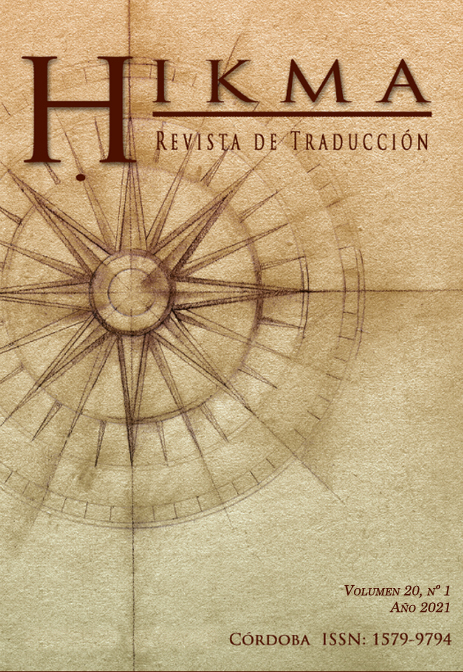Challenges of translating the Terms and Conditions of social networks: English-Spanish contrastive legal and terminological analysis based on corpus
Main Article Content
Abstract
The advancement in computer and new technologies has resulted in the emergence of a wide range of legal textual genres in electronic format. This article studies the terms and conditions of social networks. On the one hand, a brief approximation has been made to the definition of social network, as well as to the concept of contract under Spanish law. Furthermore, the general features of legal English and the figure of the contract in both Spanish law and English law have been addressed. On the other hand, a contrastive analysis on the legal terminology of the texts under study has been conducted. To this end, an ad hoc parallel corpus was compiled as starting point based on the terms and conditions of thirteen social networks, which were originally drafted in English and subsequently translated into Spanish. The corpus management programme used for such purpose was ParaConc, with which the five most significant terms, which in turn pose a translation challenge, were chosen and analysed, namely: terms, conditions, terms and conditions, termination and under. Such analysis includes both the study of the English concepts and their possible translations into Spanish.
Keywords: Social networks, Terms and Conditions, Translation challenges, Legal terminology, Contrastive analysis.
Downloads
Article Details

This work is licensed under a Creative Commons Attribution-NonCommercial-ShareAlike 4.0 International License.
Authors who publish with this journal agree to the following terms:
1. Authors retain copyright and grant the journal right of first publication with the work simultaneously licensed under a Creative Commons Attribution License that allows others to share the work with an acknowledgement of the work's authorship and initial publication in this journal.
2. Authors are able to enter into separate, additional contractual arrangements for the non-exclusive distribution of the journal's published version of the work (e.g., post it to an institutional repository or publish it in a book), with an acknowledgement of its initial publication in this journal.
3. Authors are permitted and encouraged to post their work online (e.g., in institutional repositories or on their website) prior to and during the submission process, as it can lead to productive exchanges, as well as earlier and greater citation of published work (See The Effect of Open Access).

